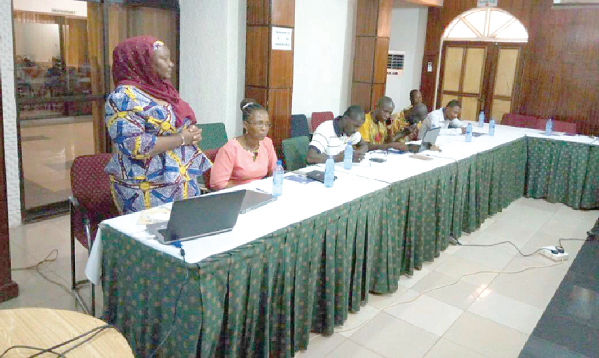
Alleged witches and their children: socially excluded group?
Camps for alleged witches and their children are only operated in the Northern Region of the country. It is also the place where witchcraft accusation, especially among women, still persists.
Victims of witchcraft allegations are often attacked, beaten and chased out of their communities and the only place they can seek refuge is the alleged witches camps in some parts of the region.
The Northern Region is home to five alleged witches camps, situated in five districts, namely Gnani in the Yendi Municipality, Nabuli and Kpatinga in the Gushegu District, Kukuo in the Nanumba South District and now a new camp, Lel Dabari, also in Gushegu, with over 200 women accused of witchcraft and about 300 of their dependents.
Currently, the Gambaga Witches Camp in the East Mamprusi District, considered to be the oldest in the region, has a total population of 66, while the Kukuo, Gnani, Nabuli and Kpatinga have a total of 68, 131, 37 and 41 inmates respectively.
Advertisement
Promoting rights
To this end, Songtaba, a non-governmental organisation (NGO) focused on the promotion of the rights of vulnerable groups with much emphasis on the rights of women and children, has called for the inclusion of issues concerning alleged witches and their children in the medium-term planning budget and activities of the various Metropolitan, Municipal and District Assemblies (MMDAs) in the Northern Region.
According to the organisation, these socially excluded groups have been denied their rights and it is time for the district assemblies to respond to the social needs of these vulnerable groups who have been driven out of their homes and communities into the alleged witches camps dotted across the region.
The Executive Director of Songtaba, Madam Lamnatu Adam, made the statement at a day’s workshop held in Tamale for local civil society organisations (CSOs) and local government officials to advocate for the implementation of policies to protect the rights of alleged witches in the region.
Reintegration and closure of camps
At the workshop, Madam Adam said her organisation’s objective of working with the alleged witches was to mobilise and build their confidence to engage stakeholders on their situation and to advocate for their reintegration and closure of the camps.
“The aim is to empower these women to live lives of dignity to enjoy their basic rights and participation in decision making in a violence-free environment,” she stated.
She said with funding from the United Kingdom Agency for International Development (UKaid), Danish International Development (DANIDA) and the European Union (EU), with support from STAR Ghana, they were working to build the confidence of the regional network of the alleged witches to adequately engage with the government and traditional authority.
She stated that they were also working to promote a violence-free environment for children staying in the camps to enjoy their right to education free from stigmatisation, adding that it was part of a long-term measure to reintegrate all the inmates of the camps and their dependents and to disband the camps and end the accusation of witchcraft.
Consequently, Madam Adam said her organisation had started to mobilise youth groups in the communities and intensified public education to halt witchcraft allegation and garner support for their reintegration. She, therefore, called on CSOs to feature in their work the call for the reintegration of alleged witches.
She bemoaned the practice of witchcraft accusation in the north and the violation of the rights of the alleged witches, saying: “In the 21st century, it is only in Ghana and for that matter in the Northern Region that we have camps for alleged witches, and people travel from outside the country to come and look at them. It is time for such a practice to come to an end and for the camps to be closed.”
Stakeholders
The Northern Regional Coordinator of the Domestic Violence and Victim Support Unit (DOVVSU) of the Ghana Police Service (GPS), Deputy Superintendent of Police (DSP) Mr Emmanuel Holortu, for his part stated that his unit and other collaborators had intensified education in the communities to halt witchcraft allegation and also encouraged victims to report to the police any attacks on them, be it assault or harm, for perpetrators to be dealt with according to the law to serve as a deterrent to others.
The President of the Regional Network of the Alleged Witches, Madam Sanatu Tahiru, who is also an inmate of the Kpatinga Camp in the Gushegu District, shared some of the experiences they went through at the various camps and said the lack of basic amenities such as potable water, electricity, proper shelter and food among others was a big challenge to them.
She noted that though most of the inmates at the alleged camps wished to be reintegrated with their families, they still harboured fears of being attacked by members of their communities when they went back home.
